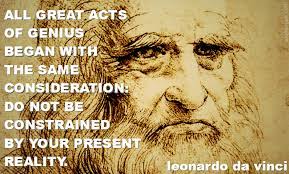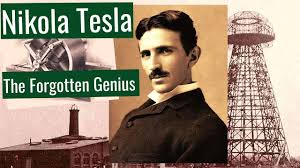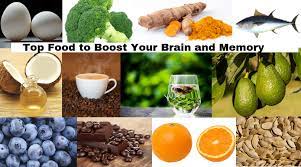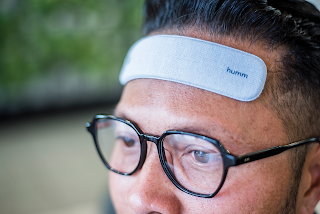From Worldometer (new COVID-19 deaths yesterday):
DAY USA WORLD Brazil India South Africa
- On first glance, this looks like a plateauing, not a decline.
- However, save for countries like South Korea with 327,532 new cases yesterday and Germany with 300,270 new cases, the world mostly seems to be getting better.
- The USA, for example, only had 38,038 new cases yesterday.
- We did, however, have the most new deaths with 1247, double that of Russia with 665.
- When I show this table of new deaths next week, for sure, the U.S. number will be lower, much lower. And probably 98% or higher will be those who are unvaccinated.
- As I've been showing for years, the actual number of COVID cases are much higher, for asymptomatic cases are mostly not reported. Well, apparently the number of deaths has been unreported by a factor of THREE!
COVID-19 Deaths Likely Three Times Higher Than Official Records
Exactly two years after the World Health Organization declared the coronavirus a pandemic, a report in The Lancet showed that 18.2 million people have probably died because of it. Researchers at Washington University studied excess death data in 191 countries to arrive at what they term the “true global death figure.” Excess deaths varied drastically by country, with the study putting the global average at 120 deaths per 100,000. Figures were worse in developing countries, with Bolivia, Bulgaria and Eswatini topping the list. At the other end of the spectrum, Iceland, Australia and Singapore escaped the pandemic most lightly. (Source: BBC)
About the Russia vs Ukraine war, it is appearing that Western sanctions are taking a toll:- The ruble has declined by 40%. This means imports cost 40% more. I guess China will gain, for their exports to Russia will garner 40% more.
- Russian public opinion is become such a problem that Putin is fighting two wars: one in Ukraine and one at home.
- Elite discontent is unusual in Putin's Russia, and could become a serious problem for him.
- Putin's greatest concern is a palace coup.
- While many companies have pulled out of Russia, risking their assets to be nationalized by Putin, some prominent ones continue to operate there, like Marriott, Hyatt, Citi and Halliburton.
- Maybe most important for the USA, the $14 billion aid to Ukraine bill was attached to a $1.5 trillion spending package funding the federal government through September as a bipartisanship victory.
- Republicans got all the defense budget it wanted, a 6% increase from last year.
- Democrats got most of what it wanted, and although the $15.6 billion COVID aid package was stripped, there was some indication that this would later pass as a spend alone item.
- Season will start on April 7.
- The post-season will be expanded to 12 teams.
- There will be a universal designated hitter.
- More advertising patches can be worn on jerseys and decals on helmets. Players will more and more look like NASCAR and the PGA.
- There are 200 free agents who now will need to swiftly find teams and sign contracts over the next few weeks.
- A year ago many were predicting that this season would be scuttled, so this is a big victory for players, owners, fans, the media and MLB commissioner Rob Manfred.
There is a relation to autism. Remember the 1988 movie Rain Man with Tom Cruise and Dustin Hoffman? Scored 89/90 on Rotten Tomatoes. Hoffman was an autistic savant.
Remember Marilu Henner of Taxi? She can recall her whole life. Watch this video.
- Born in 1452, Leonardo da Vinci was an Italian polymath. You already know a lot about him.
- German astronomer Johannes Kepler around 1600 explained the laws of planetary motion. Science is now up to confirming just about exactly 5000 exoplanets, most found by the Kepler Space Observatory.
- Leonhard Euler in the 1700's was able to repeat the Aeneid of Virgil from beginning to end without hesitation. He was a Swiss mathematician who was said to be among the greatest in all of history.
- Arturo Toscanini was an Italian conductor who lived for 89 years, and became famous because he was the musical director of the NBC Symphony Orchestra from 1937-1954. He played the cello. His daughter Wanda married pianist Vladimir Horowitz.
- C.S. Lewis, said to be the best read man of his generation, remembered everything he read. He was born in 1895, and you might have read his Chronicles of Narnia (sold 100 million copies in 41 languages), which became a movie. Said to be the most influential Christian apologist. Seven years ago I posted on Sigmund Freud vs C.S. Lewis: Is there a God?
- Serbian Nikola Tesla, never had any formal education, but spoke eight languages, He emigrated to the U.S. 1885 and has been credited with a whole range of technological advances in electricity and robotics. Had more than 300 patents, including one for a death ray. He worked for Edison and is singularly responsible for General Electric. Never slept more than 2 hours/night, spent 48 hours in a stretch at a gaming table, was a proponent of eugenics and usually walked 8-10 miles/day. Musk name his car after this prodigious genius.
- Indonesian president from 1945 to 1967 was Sukarno, who was a civil engineer. He knew a whole lot of languages and had perhaps marriages, one to bar hostess Naoko Memoto, who became Dewi Sukarno. He was the father of Indonesian independence.
- You might remember German actor Klaus Kinski, who in the 1900's acted in over 130 films, from Spaghetti Westerns to Nosferatu to Jesus. While brilliant, he also had some mental health problems.
- Akira Haraguchi of Japan was born in 1946 and holds the unofficial world record for reciting 100,000 digits of pi in 16 hours.
- In many ways, American author Jill Rosenberg Price, born in 1965, is the first person to be diagnosed with hyperthymesia. She can recite the details of every day in her life from when she was 14. While she appears to be somewhat normal, her brain apparently resembles people with obsessive compulsive disorder
- Train for an eidetic memory test.
- Store up on omega-3s.
- Slow down—and repeat, repeat, repeat.
- Pound the pavement.
- Don't skip your morning coffee.
- Keep your calendar packed.
- Get your choline fix.
- Get tipsy. (Yes, really.)
There is something called military method to help you remember better. You can read that article if you wish to improve your memory. A lot of hard work is involved.
- Did you know that 60% of your brain is made of fat, and half of that fat is comprised of omega-3 fatty acids?
- Coffee contains caffeine and antioxidants, and both are helpful.
- Green tea contains L-theanine, an amino acids that helps brain function. Also rich in polyphenols and antioxidants.
- Blueberries deliver anthocyanins providing anti-inflammatory and antioxidant effects.
- Turmeric is a deep-yellow spice found in curry powder. The active ingredient is curcumin, which is an anti-inflammatory and antioxidant compound.
- Broccoli is packed with antioxidents, plus vitamin K. A daily intake of one cup is recommended.
- Pumpkin seeds contain antioxidants, magnesium, iron, zinc and copper, all useful for brain health.
- Dark chocolate (70% or greater) and cocoa powder are packed with flavonoids, caffeine and antioxidants.
- Nuts contain healthy fats, antioxidants and vitamin E, the latter which protects cells against free-radical damage to slow mental decline. Walnuts in particular are good, for it has more omega-3 fatty acids.
- One medium orange provides all the vitamin C you need/day. Vitamin C is an antioxidant to protect the brain.
- I just wrote about eggs, which are a good source of nutrients like B6, B12, folate and choline tied to brain health. These are mostly in the yolk. Eggs help retard mental decline.
- Celery contains luteolin (also found in peppers) to help maintain memory.
- Resembles a large Band-Aid you stick to your forehead, and comes with a toggle switch to activate it.
- The U.S. Air Force supposedly ordered a 1000 patches.
- Forbes reports that this device costs $60 to boost memory 20%.


















Comments
Post a Comment